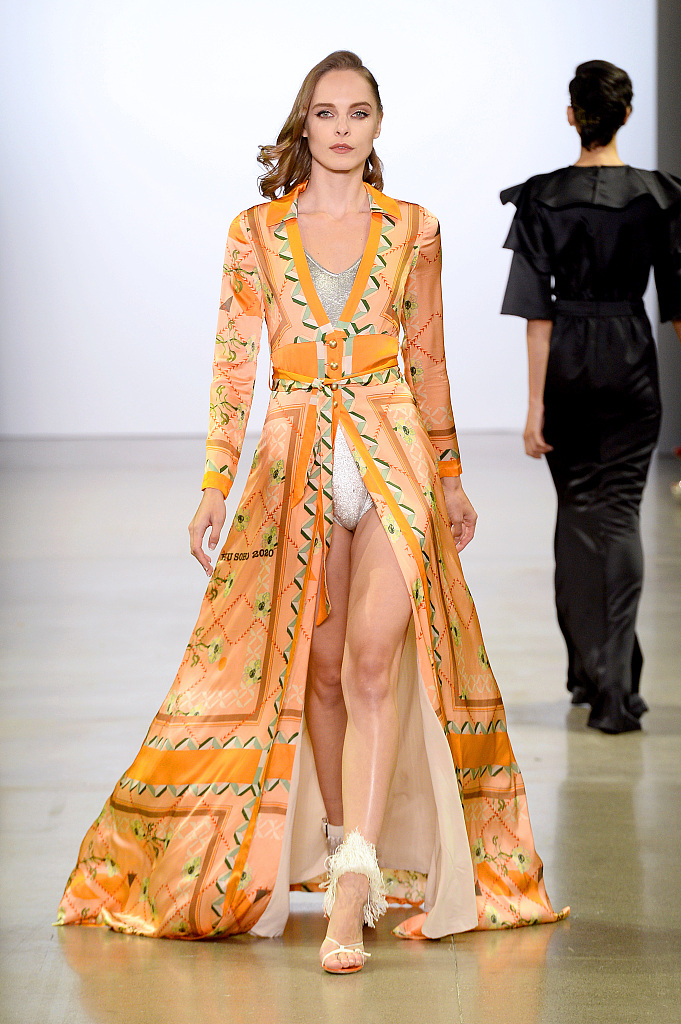Fashion Meets Function in the New Summer Line at Sedgars
Fashion Meets Function in the New Summer Line at Sedgars
Blog Article
The Impact of Sustainable Practices on Modern Fashion Styles
Lasting methods have improved contemporary style, driving a change towards green products and ethical production. Developers now favor organic cotton, recycled textiles, and innovative textiles. Upcycling has actually transformed waste into distinct garments, while openness in sourcing has actually ended up being essential. This advancement mirrors a growing recognition amongst customers concerning their getting options. As the sector adapts, new patterns arise that difficulty traditional aesthetics. What might the future hold for fashion in this structure?
The Rise of Eco-Friendly Products
Exactly how have environmentally friendly products transformed the apparel industry? The development of eco-friendly materials has actually considerably improved style, driving brands to reevaluate their sourcing and manufacturing procedures. These sustainable options, consisting of organic cotton, hemp, and recycled polyester, supply a decreased ecological footprint contrasted to conventional fabrics. Designers are currently prioritizing these products, recognizing that consumers significantly prefer brands dedicated to sustainability.This change has brought about innovative approaches, where style houses try out naturally degradable textiles and natural dyes, boosting both visual allure and ecological responsibility. On top of that, partnerships between designers and sustainability-focused business have sped up the combination of green products right into mainstream collections.As a result, the fashion industry is witnessing a profound but steady adjustment, relocating in the direction of an extra lasting future. This commitment not only reflects evolving consumer values but also demonstrates the capacity for fashion to lead in ecological stewardship.
Upcycling: Changing Waste Into Style
Upcycling has emerged as a transformative pressure in the garment industry, converting discarded materials into desirable garments and accessories. This innovative method not only minimizes waste however additionally motivates creative thinking and creativity amongst developers. By repurposing products such as old clothes, fabric scraps, and also non-textile products, upcycling develops unique items that inform a tale, showing private style and environmental consciousness.Many independent developers and contemporary brand names have welcomed upcycling as a core method, attracting customers who value sustainability and originality. The process typically entails methods like decoration, patchwork, or reconfiguration, permitting countless possibilities in design. Consequently, upcycled style resonates with those looking for to make ecologically liable choices while still sharing personal aesthetics.In significance, upcycling not just alleviates the environmental effect of style waste however additionally promotes a brand-new culture of innovation and recognition for craftsmanship within the sector.
Ethical Manufacturing: Fair Labor and Transparency
Ethical production in vogue emphasizes the relevance of fair wages for workers, guaranteeing that workers receive simply compensation for their efforts. Openness in supply chains is important, permitting consumers to comprehend the beginnings of their garments and the problems under which they are made. Additionally, ethical sourcing methods advertise responsibility in picking products, reinforcing the commitment to sustainability and social justice.
Fair Salaries for Workers
While the fashion business increasingly embraces sustainable practices, making sure reasonable incomes for employees continues to be a vital element of honest manufacturing. Fair earnings not just equip employees however likewise improve the general lifestyle for people in the supply chain. Lots of brand names are now embracing plans that focus on fair payment, recognizing that a lasting future can not be developed on exploitation. By dedicating to fair pay, business promote loyalty and improve efficiency among their workers (Sedgars). Additionally, consumers are coming to be extra mindful of labor problems and are progressively demanding transparency regarding employees' civil liberties. As an outcome, brand names that focus on fair salaries are not just straightening with moral requirements however are also placing themselves competitively in a market that worths social obligation
Transparency in Supply Chains
The dedication to fair incomes is inherently linked to the more comprehensive problem of transparency in supply chains within the garment industry. Openness guarantees that customers are notified concerning the origins of their clothing and the problems under which they are produced. Brand names that prioritize openness commonly publish thorough reports detailing their supply chain processes, labor techniques, and sourcing of materials. This visibility promotes trust and commitment among customers who significantly demand moral methods. Transparency assists to hold business liable for their labor techniques, allowing scrutiny and motivating enhancements. By revealing the intricacies of their supply chains, brand names can add to a more fair style community, inevitably promoting not just ethical manufacturing yet also sustainable intake amongst their clientele.

Honest Sourcing Practices
As customers become a lot more conscious of the effect of their purchasing decisions, brands are significantly embracing moral sourcing practices that prioritize reasonable labor and ecological sustainability. These practices involve making sure that employees receive fair earnings, secure working conditions, and are treated with dignity. Lots of style companies are moving away from exploitative labor techniques and are rather working together with vendors that adhere to ethical requirements. Openness in sourcing more enhances consumer trust, as brands reveal their supply chain methods, permitting consumers to make informed choices. This shift towards honest sourcing not just adds to social responsibility but also resonates with an expanding group that worths sustainability in vogue. Because of this, ethical sourcing is coming to be a defining characteristic of modern style brand names.
The Function of Modern Technology in Lasting Fashion
The style sector has actually long been linked with waste and air pollution, technology is increasingly transforming it right into an extra lasting market. Technologies such as 3D printing allow developers to produce garments with much less product waste, while electronic material printing permits on-demand production, lowering excess stock. In addition, developments in recycling modern technologies are promoting the repurposing of fabrics, decreasing garbage dump contributions.In enhancement, data analytics and artificial knowledge assistance brand names anticipate patterns more properly, ensuring they generate just what is required. Blockchain technology boosts openness in supply chains, allowing customers to trace the beginnings of their garments and verify lasting methods. Furthermore, wearable modern technology is advancing, promoting sturdiness and functionality in vogue products. Through these technological advancements, the garment industry is slowly taking on a more round economic climate model, cultivating sustainable techniques that can redefine its environmental effect.

Aware Consumerism: Moving Customer Mindsets
Mindful consumerism is improving the apparel industry as buyers significantly prioritize moral fashion selections. This shift is driven by a demand for openness, compelling brands to divulge their methods and supply chains. Therefore, brand commitment is evolving, with consumers most likely to sustain those that straighten with their values.
Moral Style Options
Moving customer attitudes towards honest fashion selections reflects a growing recognition of the impact of customer behavior on the setting and society. Customers are progressively prioritizing brand names that highlight ethical manufacturing practices, lasting materials, and reasonable labor problems. This change is sustained by a need to sustain companies that line up with individual worths, promoting a more accountable apparel industry. As an outcome, brand names are adjusting their methods, including openness and sustainability right into their core missions. Ethical fashion choices not only challenge conventional retail methods however likewise motivate consumers to review the lifecycle of their garments. This shift symbolizes a cumulative step in the direction of a much more mindful technique to style, where the effects of acquisitions prolong past simple aesthetic appeals to incorporate more comprehensive social and ecological factors to consider.
Effect of Openness

Brand Name Loyalty Shift
What drives customers to remain devoted to brand names in today's fashion landscape? Progressively, sustainability plays a crucial function. As recognition of ecological problems expands, customers are gravitating in the direction of brand names that demonstrate moral practices and openness. This shift in the direction of aware consumerism has actually caused a reevaluation of traditional brand name loyalty, where values straighten more closely with personal principles. Brand names that focus on lasting materials, fair labor practices, and green manufacturing methods are commonly compensated with consumer loyalty. This development is reflected in acquiring choices, as customers are much more happy to support brand names that add favorably to society. Sustainability has ended up being not simply a marketing tool, but a specifying aspect in establishing long lasting brand name connections with a more socially mindful and discerning consumer base. Conscious The Effect of Sustainable Style on Patterns
As consumers significantly prioritize sustainability, the style market is experiencing a substantial change in patterns. This change has caused the surge of environmentally friendly products, such as organic cotton, recycled polyester, and cutting-edge fabrics originated from lasting resources. Developers are increasingly concentrated on creating functional, long-lasting garments that urge mindful usage, moving far from rapid fashion's short lived styles.Moreover, ethical methods are becoming a characteristic of brand identification, with several companies highlighting their commitment to fair labor and environmental stewardship. The influence of lasting style is additionally obvious in the popularity of thrift buying and clothes swaps, promoting a round economic situation and minimizing waste.Fashion shows and campaigns currently usually feature sustainable collections, highlighting the aesthetic allure of eco-conscious options. Overall, the effect of sustainable style on patterns mirrors a more comprehensive societal shift in the direction of accountable consumerism, shaping the future of the industry in extensive ways.
Future Technologies in Eco-Conscious Style
The development of lasting fashion patterns prepares for future developments in eco-conscious style. As consumers significantly focus on ecological obligation, designers are checking out innovative products and methods. Biodegradable textiles, such as mycelium and algae-based textiles, are gaining grip, assuring to reduce waste and reliance on petroleum-based fibers.Moreover, improvements in technology are paving the method for innovative production methods. 3D printing, for example, permits on-demand manufacturing, lessening excess inventory and resource usage. Round style versions are likewise emerging, emphasizing recycling and upcycling, making it possible for garments to have actually prolonged life cycles.Collaboration between brand names and technology business is essential for these innovations. By leveraging information analytics and artificial intelligence, designers can create more sustainable supply chains and reduce their carbon footprints. As eco-conscious techniques proceed to progress, they essentially transform the fashion landscape, pushing the boundaries of imagination while safeguarding the planet.
Often Asked Inquiries
How Can I Identify Sustainable Fashion Brands When Buying?
To identify lasting fashion brand names while buying, one need to seek qualifications, scrutinize products, analyze production transparency, and study brand name worths. Sedgars Designer Fashion. Engaging with consumer reviews and sustainability records can even more direct educated buying choices
Are Second-Hand Clothing Thought About Sustainable Style?
Second-hand garments are frequently considered lasting style because of their function in reducing waste and extending the lifecycle of garments. By acquiring pre-owned things, customers add to a more eco-friendly apparel economy.
What Is the Ecological Impact of Quick Fashion?
The environmental impact of fast fashion is considerable, adding to pollution, extreme waste, and source depletion. The industry's quick manufacturing cycles frequently focus on revenue over ecological sustainability, exacerbating climate change and harming environments worldwide.
How Do Lasting Practices Affect Fashion Rates?
Lasting techniques often result in greater manufacturing expenses because of moral sourcing and eco-friendly materials. Sedgars Designer Fashion. Subsequently, style pricing may increase, reflecting the investment in environmental responsibility and reasonable labor techniques, which can affect customer acquiring choices
Can Lasting Style Be Elegant and Stylish?
The question of whether sustainable style can be stylish and trendy usually emerges. Many designers currently blend green Sedgars Designer Fashion products with ingenious layouts, verifying that sustainability and modern looks can exist together, attracting a fashion-conscious target market. Sustainable practices have actually improved modern style, driving a change towards eco-friendly materials and honest production. While the fashion industry increasingly welcomes sustainable practices, making certain reasonable incomes for workers continues to be a critical element of moral production. Aware consumerism is improving the fashion market as customers progressively prioritize moral fashion selections. The influence of sustainable style is additionally evident in the popularity of second hand shopping and garments swaps, promoting a circular economic climate and decreasing waste.Fashion programs and campaigns now commonly include lasting collections, stressing the visual charm of eco-conscious options. To identify lasting style brand names while purchasing, one need to look for qualifications, inspect materials, examine manufacturing openness, and study brand worths.
Report this page